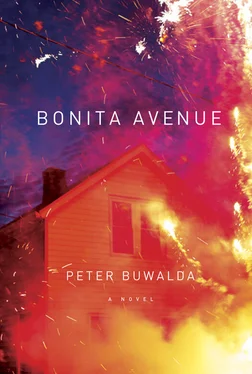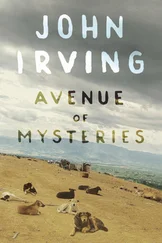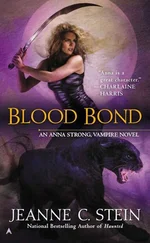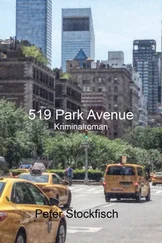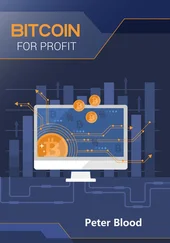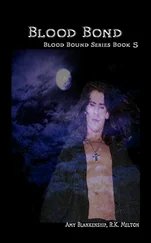Her wonderful grandpa? A haze hung over the Valley, a blend of mist and smog. Below, on the broad sidewalk along Coldwater Canyon Avenue, an Asian kid in a Dodgers jersey gingerly opened the wrought-iron gate that separated our front yard from the street and climbed up the sandstone steps with a newspaper he’d taken out of a shoulder bag.
Her wonderful grandpa. I went out into the corridor. Danny and Deke were hanging in the Recruiting doorway, glass in hand. I greeted them, silently went down two flights of carpeted stairs and in the kitchenette I found a tray of used champagne glasses. I took the cleanest of them and filled it to the brim from one of the open bottles on top of the fridge. Sipping, I walked back upstairs and sat down at the computer. I opened Microsoft Office and sent an official reply to Sotomayor in which I indicated I wasn’t prepared to fly to Dallas a second time. He could just organize a lawyer in L.A.
I pulled the elastic band from my hair, shook it loose, and stared out over Coldwater. The paperboy opened a gate across the street. The cuffs of his formless jeans were squashed under the soles of his sneakers.
So Aaron was still off his rocker. I opened the letter again and as I reread his garbled missive an unpleasant mix of pity, relief, and disgust settled over me. For the time being I was relieved; it seemed to me to be a completely harmless e-mail from someone with no plan or ulterior motive. The guy had just sat down and let himself go, apparently in one confused spurt. I’d forgotten he had this e-mail address, I had opened the account during my McKinsey internship. The last time I saw Aaron was at the end of December 2000, when he went off the deep end. It seemed like half a lifetime ago, an oldtime newsreel, it genuinely hurt me to think that he still …
Or again , of course. As I read his little epistle for the third time I realized that the line between fact and fiction wasn’t so easy to trace, if there was even anything factual about it at all. Much of it was grotesquely nonsensical: to start with, I was single, mother of a little boy, and hadn’t been in Brussels in thirty years. My heart skipped a beat when he started in on that child. Juliette — where the hell did he get that from? What did it say about the rest? Had he really spoken to my mother? Of course not. Tineke thin ? That seemed to me confirmation that he was imagining things, for some reason confusing a perfect stranger with my mother, just like he thought he saw me at a school playground. I did not know much about psychiatry, but this seemed to me completely delusional.
On the other hand, he was using a Belgian provider, but what did that prove except that maybe he did live in Brussels, he was quite detailed about that, although it was beyond me what he’d be doing there. A malicious image welled up in me, I envisaged a busload of crazies from Enschede on a day trip to Brussels, and Aaron wandering the streets for a few hours while the orderlies searched for him.
I brought the empty champagne glass to my lips and looked past its slender outline at the moisture stains on the ceiling. What I didn’t get is why he would make contact now, after eight years of silence. There must be a reason. Could he really not have known about Siem? Was that possible? Could he have missed it? Maybe he just read it now somewhere, or saw it on television, and the news had set him off. It was bizarre, utterly ironic, that Aaron of all people — chairman of the Siem fan club himself — wouldn’t know. I reread the part where he mentioned my father. I let his question about whether it all started with the fireworks disaster sink in. Not so crazy after all. If you thought about what had happened to the three of us after May 13, 2000, then the answer could well be: yes.
All three of us were out of town the day SE Fireworks exploded. Siem, if I’m not mistaken, was in Shanghai on university business, Aaron and I were at a wedding in Zaltbommel. We were safe. None of us was left homeless (although in Aaron’s case it was a close call, a matter of just fifteen meters), nobody lost an arm or a leg. Still, I too was inclined to believe that the merciless blast had a disruptive effect on us all. Maybe it’s a law of nature that a blowup of those proportions sets unforeseen mechanisms in action, produces shock waves that in turn bring about bizarre developments, create misunderstandings, compel decisions. It seems like disasters of this scale act as miniature Big Bangs that expand into spaces buzzing with consequences, intrigues, possibilities, and impossibilities. A physical disaster like a fireworks accident is a maternity ward where new disasters are born.
Not that we had any inkling that day — on the contrary. On the day itself, no clue. That Saturday, May 13, 2000, Aaron and I were safe and sound, digging into the marzipan wedding cake of a certain Etienne, the only high school friend Aaron still saw, and down there in Zaltbommel we found it difficult to really take in what had happened in our city, 150 kilometers away. Being among the all-day guests, we decided to spend an hour back in our hotel room while the bridal couple prepared for the photo session. On the steps of the town hall, Aaron gave Etienne Vaessen a squeeze round his creamy waist and said we were nipping out for a quick break.
Not long before good manners pressed us to drive out to the estate where the dinner was held, I switched on the television. It was about five o’clock, I had just showered, Aaron was still in the bathroom fussing with his cuff links. Channel-surfing from the bed, I noticed that three stations were broadcasting the same images of a city, the view of a city you see when you approach it in a Boeing, and from that city rose an immense black column of smoke, that I saw, and the city was called Enschede, I registered that too. When Aaron came and sat down next to me, we watched footage from the ground, burning cars under a pitch-black sky, policemen shoving bewildered people in short pants out of a rubble-strewn street. If he’d looked a bit closer he would have seen that the street was the Lasondersingel, 150 meters from his house. “We’ve got to get back,” he said, “and ransack the Grolsch brewery,” a little joke I had to laugh at, simply because I just could not for the life of me imagine that the well-worn stoops that led to that little joke, the cobbled streets along which on other Saturdays we would stroll up to the Roomweg to buy fried rice at the tiny Chinese take-out, or a little farther on, order RAS French fries with herb salt at De Roombeker cafeteria, let’s just call it the road map of Aaron’s daily life — because it was utterly inconceivable to me that that inert, inviolable, unalterable reality had ceased to exist .
I hadn’t recharged my cell phone, and Aaron didn’t own one back then. There was a pseudo-classical bakelite telephone in the hotel room, a matt-black stagecoach with a dial and coiled cord. I tried to reach my parents, but soon concluded that the network around Enschede was overloaded. Aaron didn’t think it was necessary to phone Venlo. Afterward we found out how many friends, family, and acquaintances had a very different opinion on the matter. His parents had been phoned by an uncle, a friend of his mother, his grandfather, his brother Sebastian, a classmate, his ex-judo instructor, the mother of an ex-girlfriend, an editor from Tubantia Weekly : understandably and genuinely concerned people who all asked, in a variety of ways, the same question: was Aaron still alive? His mother reached us the next day at my student house in a terrible state — she had spent the entire night in the living room, poring over teletext updates and sitting through reruns of Nova and the evening news, hoping for a sign of life. His dad, Aaron told me almost derisively, had exhibited less patience. “I’m going there,” he said at nine-thirty — and I could just imagine how Aaron’s tawny, bearded father grabbed his car keys and a pack of shag from the dining room table, and without further commentary drove off in the froggy-green Toyota Corolla he used to fetch us with when we took the train down to Venlo. To no avail, of course. His father, a pastry baker whose forearms carried the scars of 100,000 red-hot baking sheets, spent an hour wandering up and down police barriers and caution tape, accosting firemen and emergency personnel until they finally shooed him away.
Читать дальше
